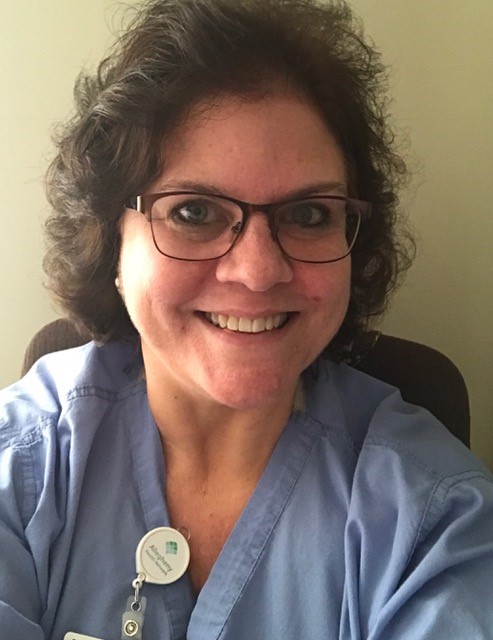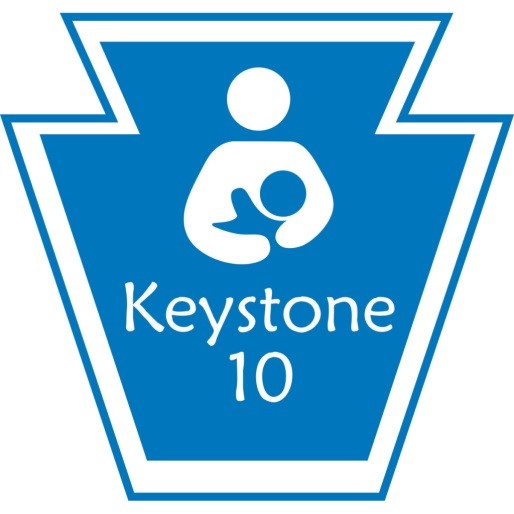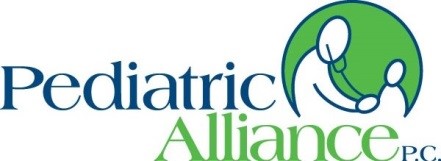Jefferson Hospital Offers Breastfeeding Expertise and Support Through Certified, Trained Nurses, Midwives, and Doctors

Preparing for your baby’s arrival involves many important choices: Which obstetrician is the best? Will it be cloth or disposable diapers?
But deciding whether to breastfeed or use formula is perhaps the most significant decision you’ll need to make before welcoming your child.
For some women, breastfeeding comes naturally: Their babies latch with little coaxing, their milk supply never runs low, and all seems to be right in the world of motherhood.
“For other women, breastfeeding can be intimidating and painful — even a cause of shame if they aren’t successful,” said Mary Kish, a certified registered nurse practitioner in the Level II neonatal intensive care unit (NICU) at Allegheny Health Network’s (AHN) Jefferson Hospital, south of Pittsburgh. “But breastfeeding doesn’t have to be that way.”

Mary Z. Kish, DNP, NNP-BC, IBCLC at Jefferson Hospital
Whether you’re preparing to welcome your first or fifth child, you’ll find compassionate and thorough breastfeeding education and support at Jefferson Hospital. In the hospital’s Women and Infants Center and its state-of-the-art birthing center, nurses, midwives, and doctors are specially trained according to the latest breastfeeding guidelines.
Jefferson’s commitment to breastfeeding follows the best practices of a Pennsylvania Department of Health initiative called Keystone 10.

Keystone 10 is a quality improvement breastfeeding initiative
Following the principles of that training program requires nurses, midwives, and doctors to complete nearly 20 hours of classroom and hands-on instruction. And it means Jefferson is committed to encouraging breastfeeding, promoting its healthful advantages, and improving the experience for moms and babies.
“Our goal is to give mothers who want to breastfeed the most helpful tools available so they can succeed at it,” Kish said. “And we want them to know that the breastfeeding option offers life-lasting health benefits.”
Nurturing and Support from Start to Finish
At Jefferson, breastfeeding education and support are woven through the patient’s entire journey into motherhood. But there are specific points at which it’s always discussed.
“Moms get breastfeeding information prenatally in the obstetrician’s office, either from a nurse or the doctor,” Kish noted. “Then, if the mother takes prenatal classes, the benefits of breastfeeding are discussed in class.”
Mothers who receive midwifery care get breastfeeding information at least once every trimester, said Diana Shane, a certified nurse midwife with AHN Midwives at Jefferson.
When admitted for delivery, women are asked about their choice for feeding, so the hospital staff can help moms hit the ground running once the baby arrives.
“At any time during her stay, if a mother has any breastfeeding issues, a certified lactation consultant is also available to offer guidance and coaching,” Kish said.
Including Kish, the hospital’s NICU has four neonatal nurse practitioners who have earned certification through the International Board of Certified Lactation Consultants. Neonatologist Dr. Kara Gardner also has the certification, as do two members of AHN Midwives.

Diana Shane, RN, MS, CNM at Jefferson Hospital
“If a mother is having difficulty, like pain when breastfeeding or a low milk supply, one of our lactation consultants can help,” Shane said. “When it’s time for the infant to feed, the consultant will watch the baby latch and help the mother address any issues so she’s successful.”
At discharge, Jefferson ensures mothers are connected with ongoing breastfeeding support through community-based programs. These include education events AHN offers throughout the Pittsburgh area.
One option is the recently established Mothers’ Café support group held at Jefferson from 11 a.m. to 12:30 p.m. every other Wednesday in the AHN Midwives waiting area.
“A nurse leads the group, and moms can talk with each other about breastfeeding and other parenting issues,” Kish said. “It’s free for mothers, including free parking. Pregnant mothers also are welcome to attend.”
Breastfeeding education and ongoing guidance also are available at the AHN pediatric practice operated by Pediatric Alliance Jefferson Hills, which is located on the hospital campus.

Healthier Babies, Healthier Moms
When it comes to the health benefits of breastfeeding versus formula feeding, there is no contest.
“There’s no shortage of medical proof that breastfeeding promotes good health,” Kish said. “It can reduce a baby’s risk of type 2 diabetes, early childhood cancer, and other conditions. And it can lower a mother’s risk of breast, uterine, and ovarian cancer.”
For example, the American Academy of Pediatrics (AAP) noted in 2012 that babies who’ve been breastfed for one month or longer have a 36% reduced risk of sudden infant death syndrome (SIDS). And babies who’ve breastfed for six months or more have a 20% lower risk of a certain type of leukemia.
“Our bodies have been engineered specifically to produce the best nutrients and antibodies for our babies, and we pass them along through breastfeeding,” Shane said. “You can try to develop formula to mimic that, but it comes nowhere near to what nature provides.”
Preemies who stay in a NICU and receive mothers’ milk see significant health benefits versus formula feeding, which first became an option in the late 1800s. They have lower rates of infection than formula-fed babies, according to the AAP.
And human milk boosts preemies’ brain development. One study showed that those who got mothers’ milk in a NICU scored significantly higher in mental, muscle, and behavioral function at 18 and 30 months, the AAP notes.
“If a mom delivers a premature baby, her milk will actually have a higher fat and calorie content to provide more of what the baby is lacking,” Shane noted. “It’s amazing that the body knows how to do that.”
Breastfeeding benefits moms as well.

One study cited by the AAP showed that women who breastfed for longer than 12 months had a 28% lower rate of breast cancer and ovarian cancer. And mothers who breastfed from 12 to 23 months had significantly lower rates of high blood pressure, high cholesterol, cardiovascular disease, and diabetes.
“Jefferson Hospital has long been an advocate of breastfeeding and its health benefits,” Kish said. “Our birthing center was designed with breastfeeding in mind. Unless the baby is in the NICU, moms and infants stay in the same room, which promotes bonding and contributes to successful breastfeeding.”
A No-Pressure Environment
Kish estimated that roughly 80 percent of women who deliver their babies at Jefferson decide to breastfeed. But, along with Shane, she noted that mothers who wish to formula feed are never pressured into breastfeeding.
“We’re here to help mothers make an informed decision about what’s best for them and their babies,” Shane said. “If a mother is unsure whether she wants to breastfeed, that’s OK. We’ll support her no matter what.”
In past generations, when most women breastfed their babies, help and advice were close at hand — often from the mother’s own mom or grandmother. “Now, some of that knowledge has been lost in the community over time, and that can make it intimidating for new mothers,” Shane said. “Breastfeeding might not come naturally to them.”
That’s why it’s important for mothers to get help early on from specially trained professionals, she said.
“Every breastfeeding experience is different, so even if you’ve not been successful in breastfeeding one child, you may be successful in feeding another child,” Kish said. “It’s best to try rather than to not try at all. Down the road, you’ll likely wonder if you would have been successful had you tried it.”
For breastfeeding information and support, contact the Jefferson Hospital Women’s Health Center at 412-267-6600.














